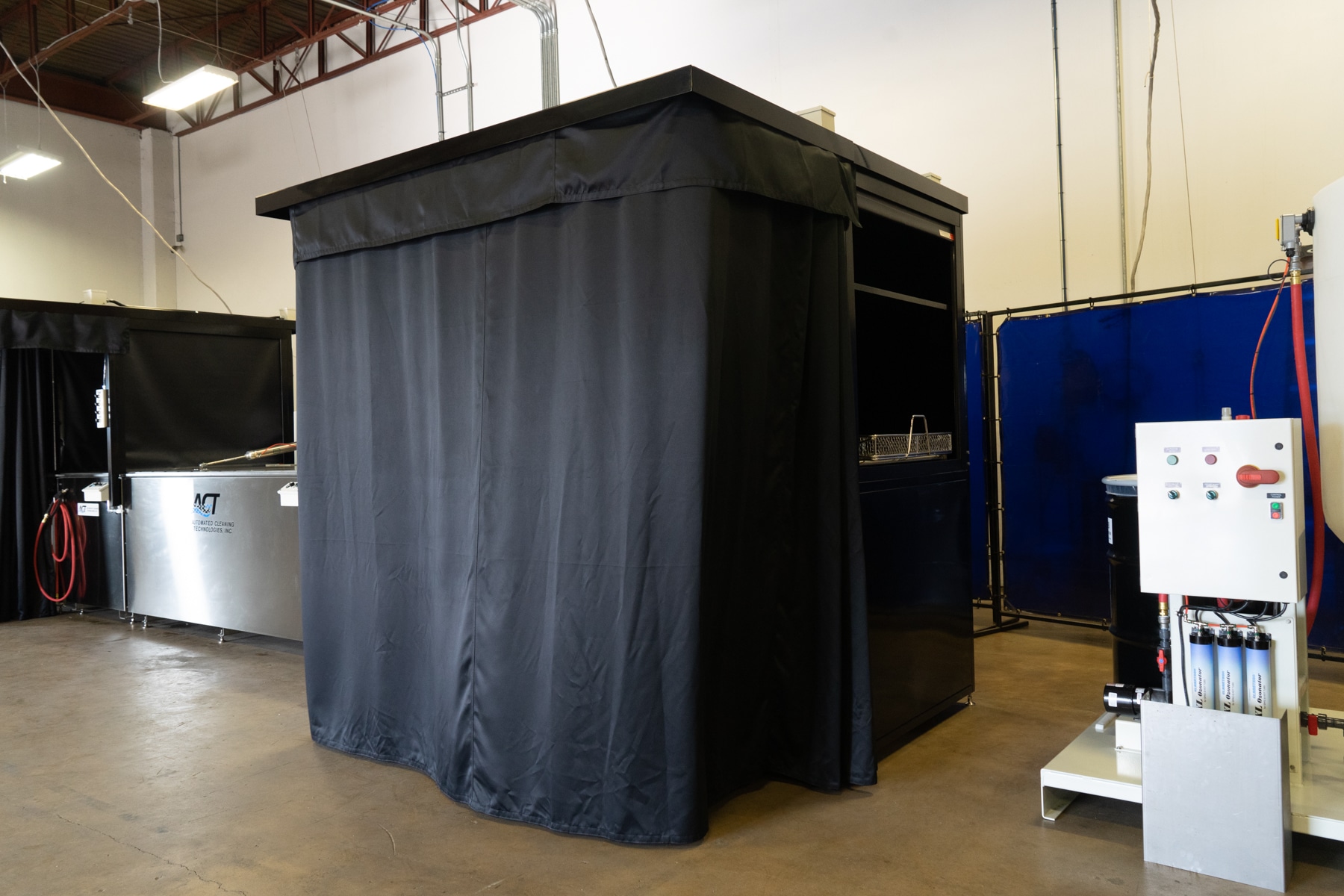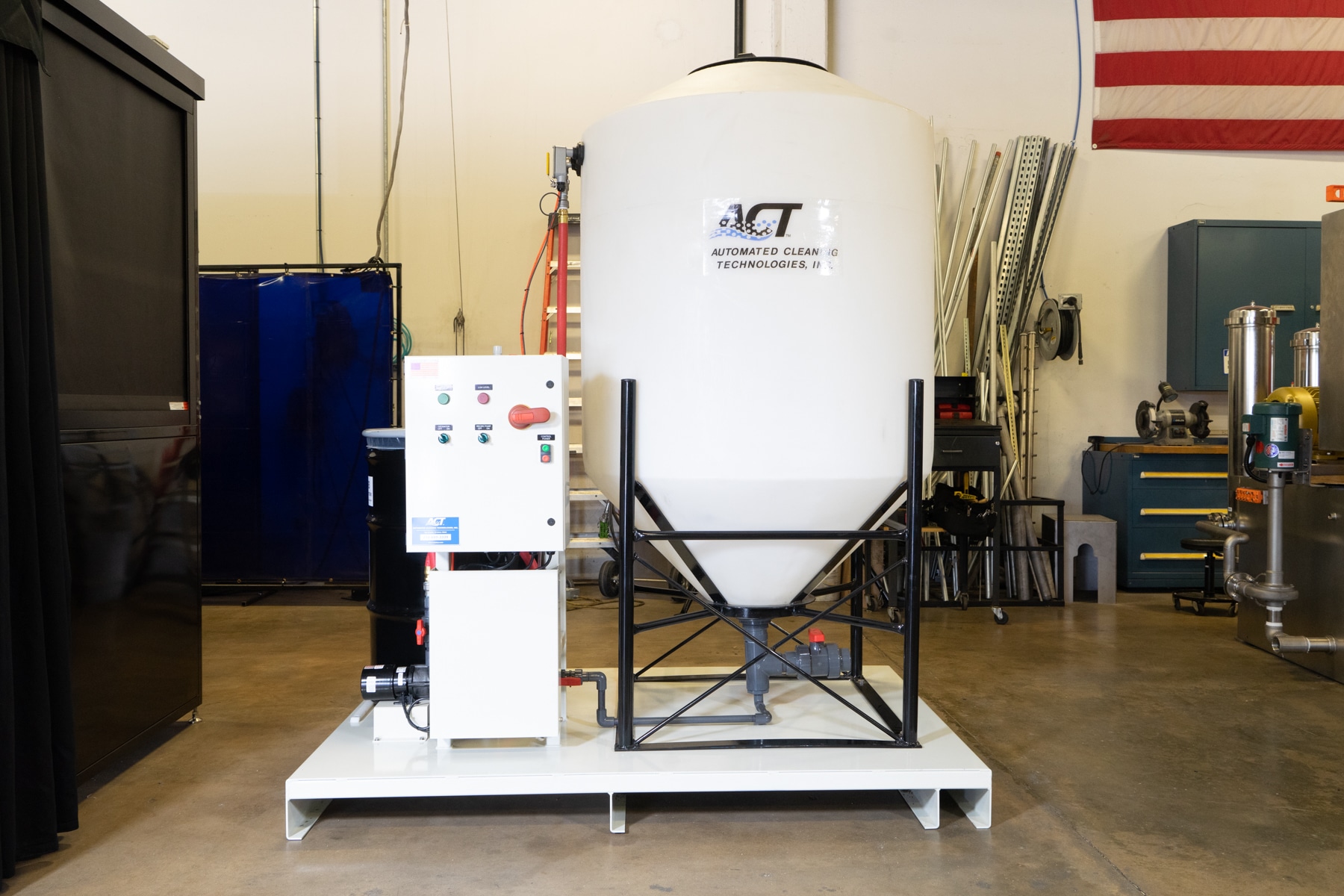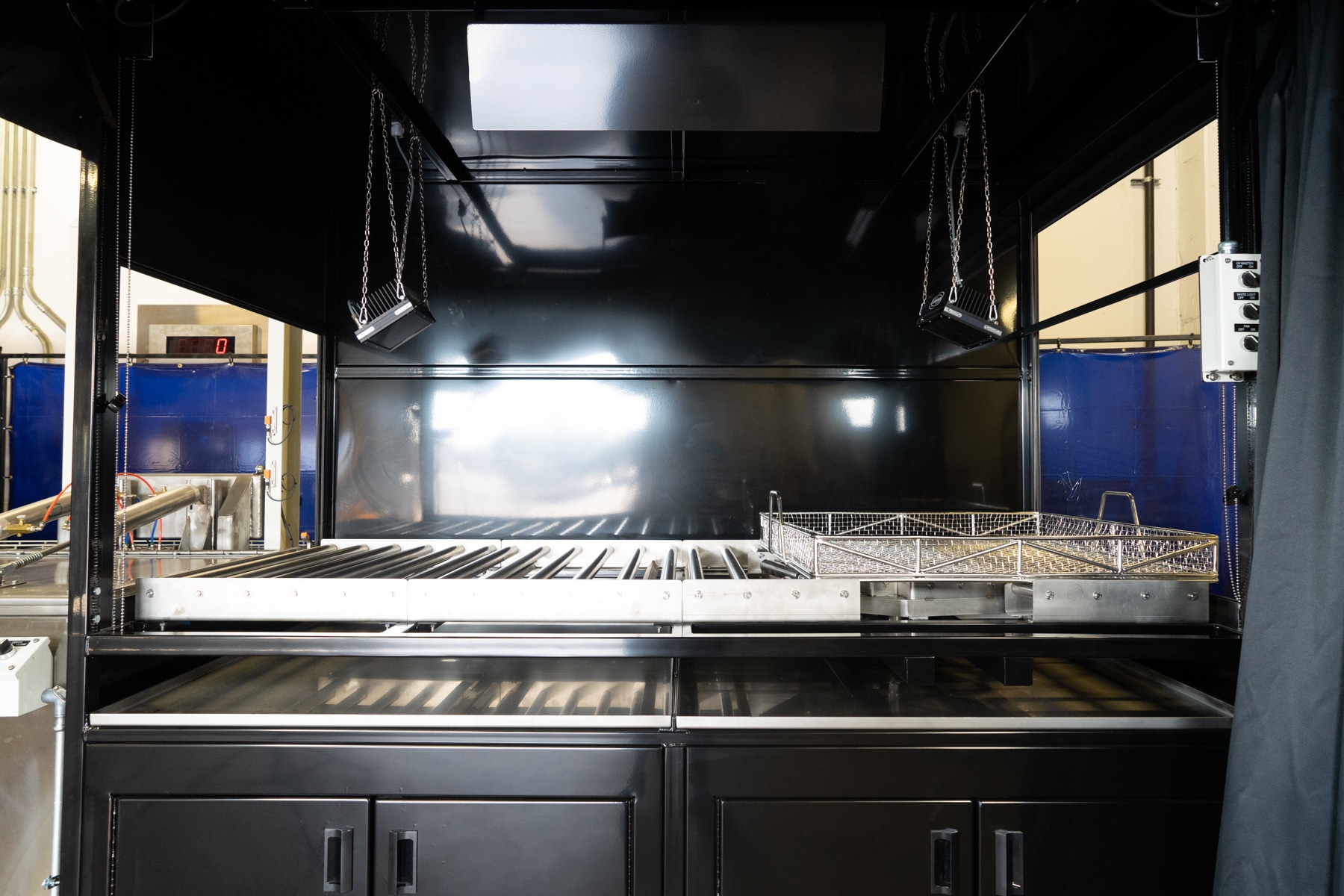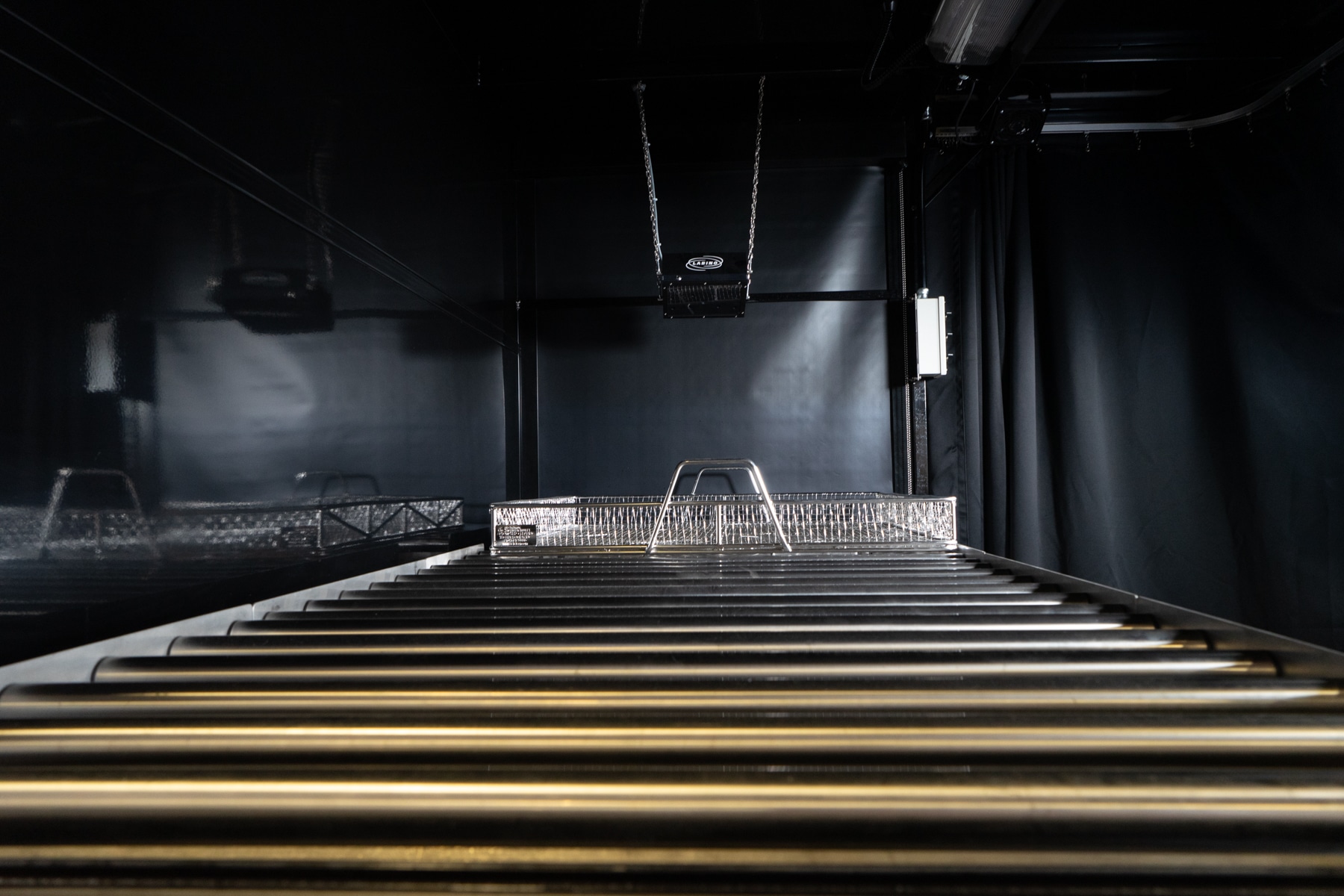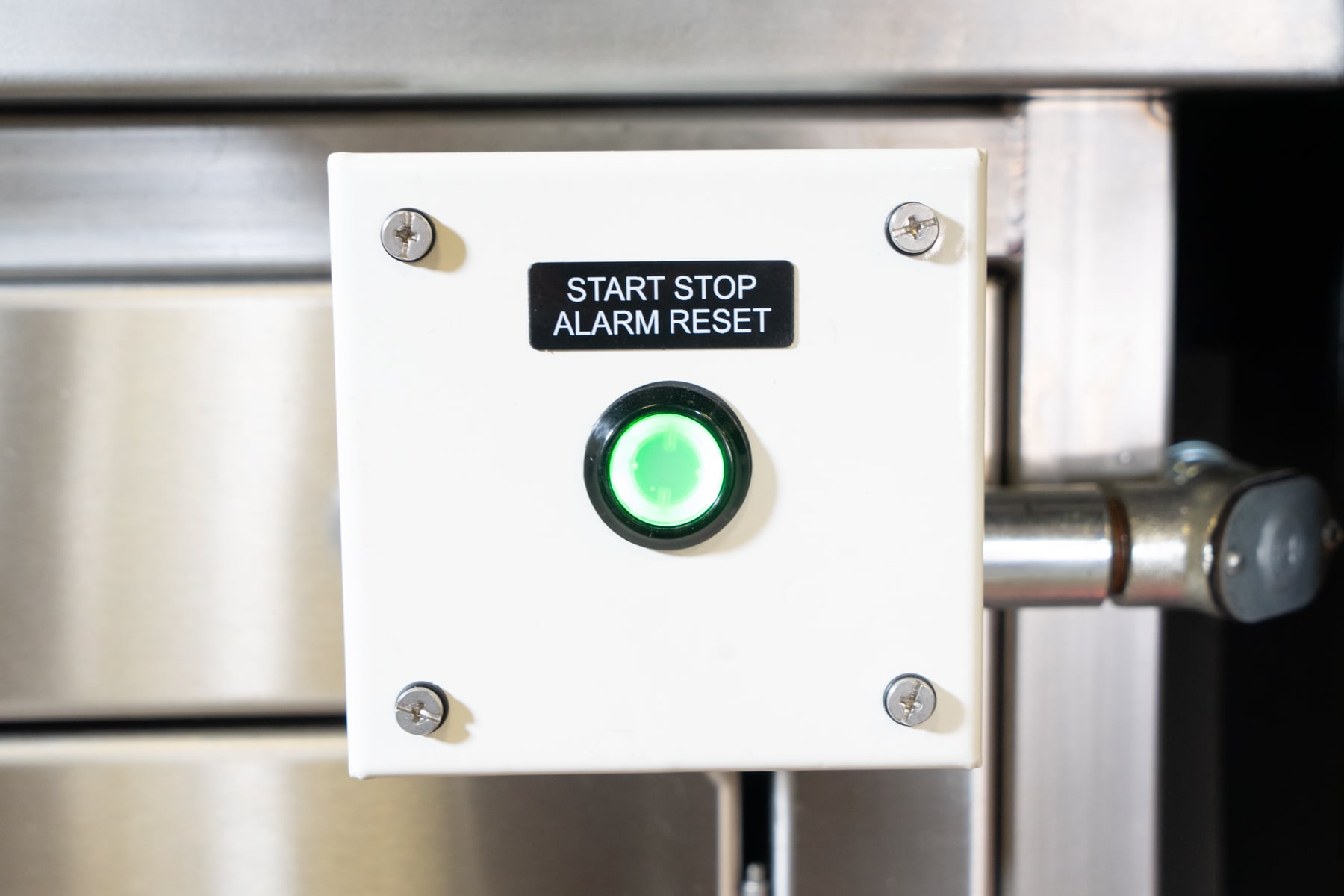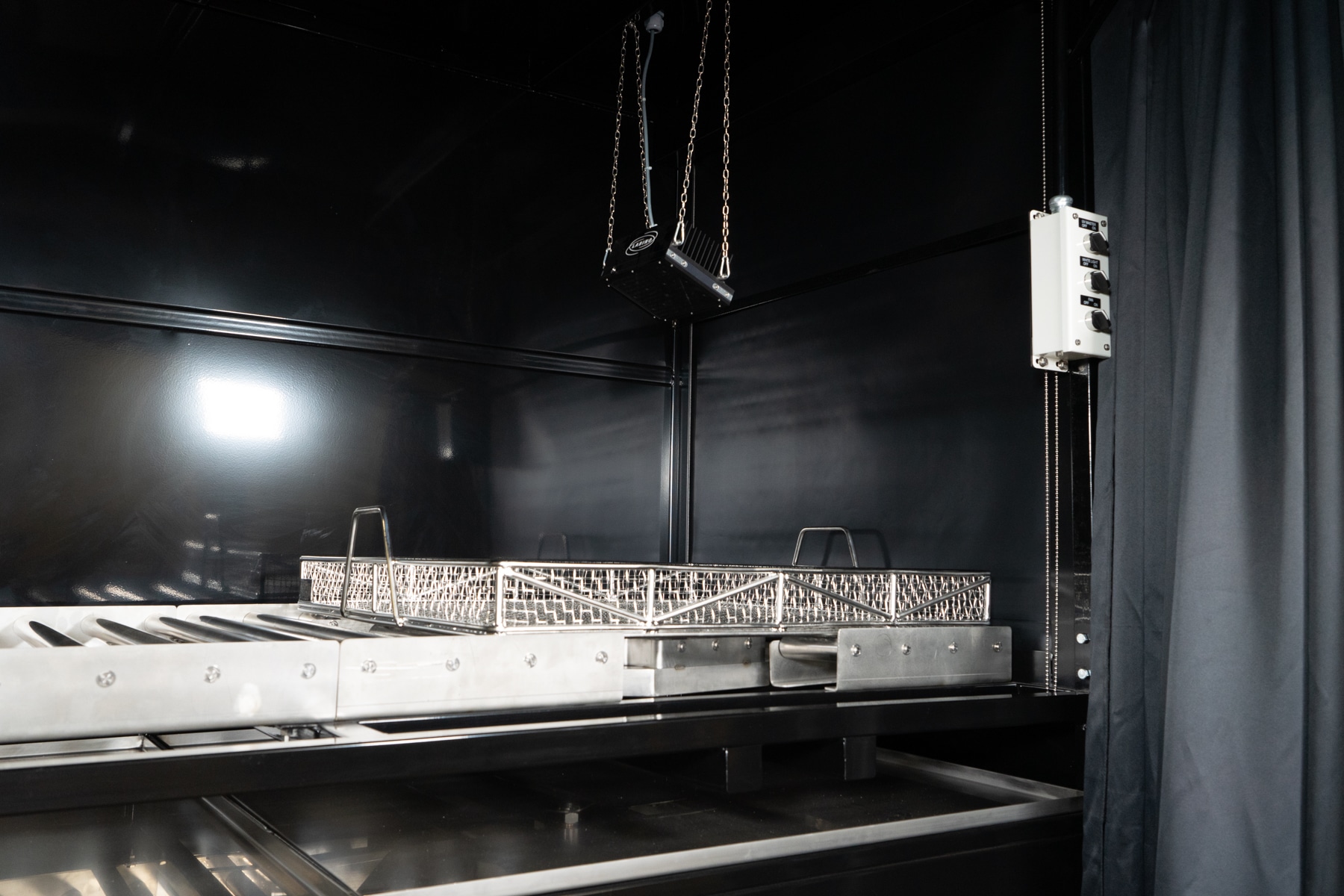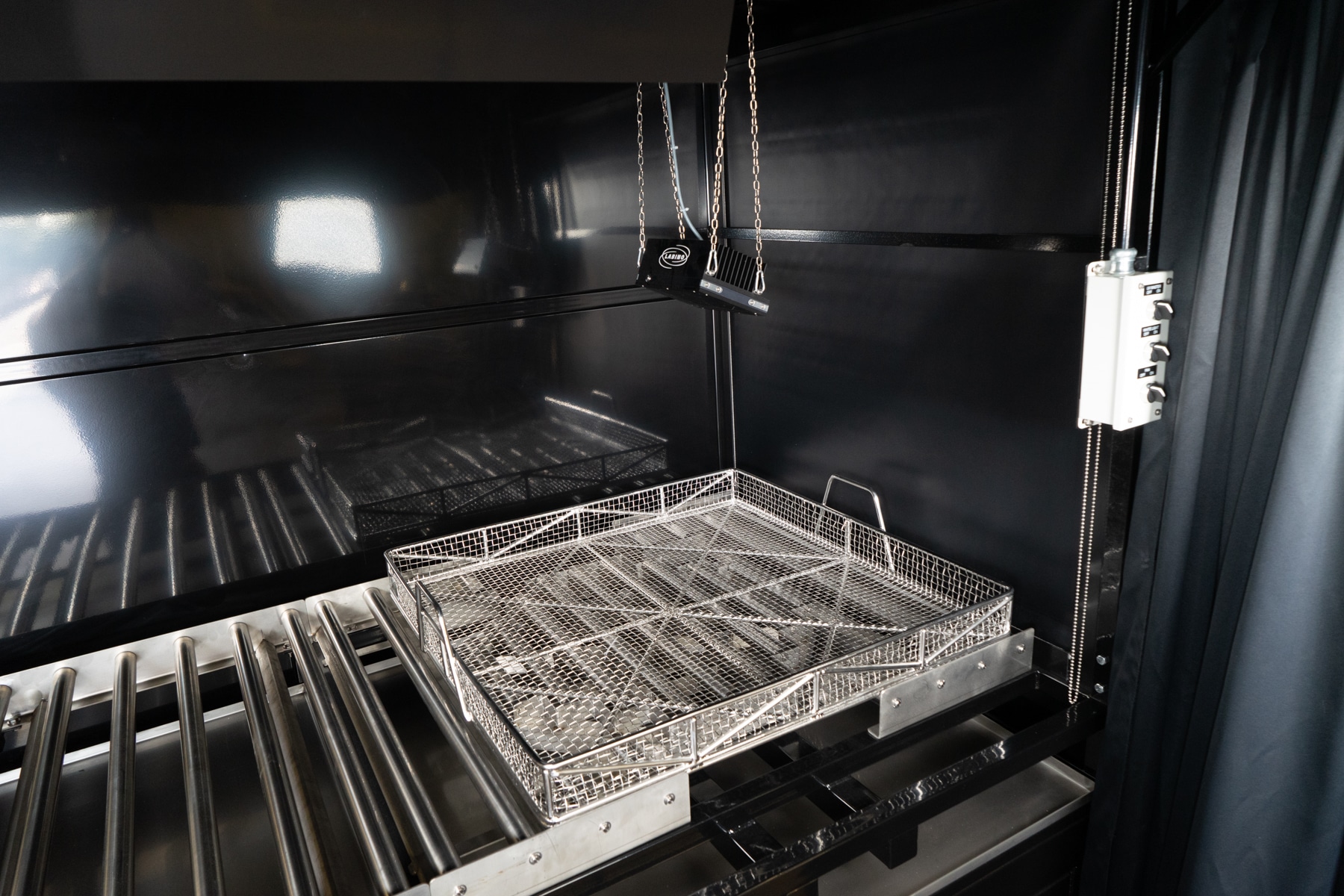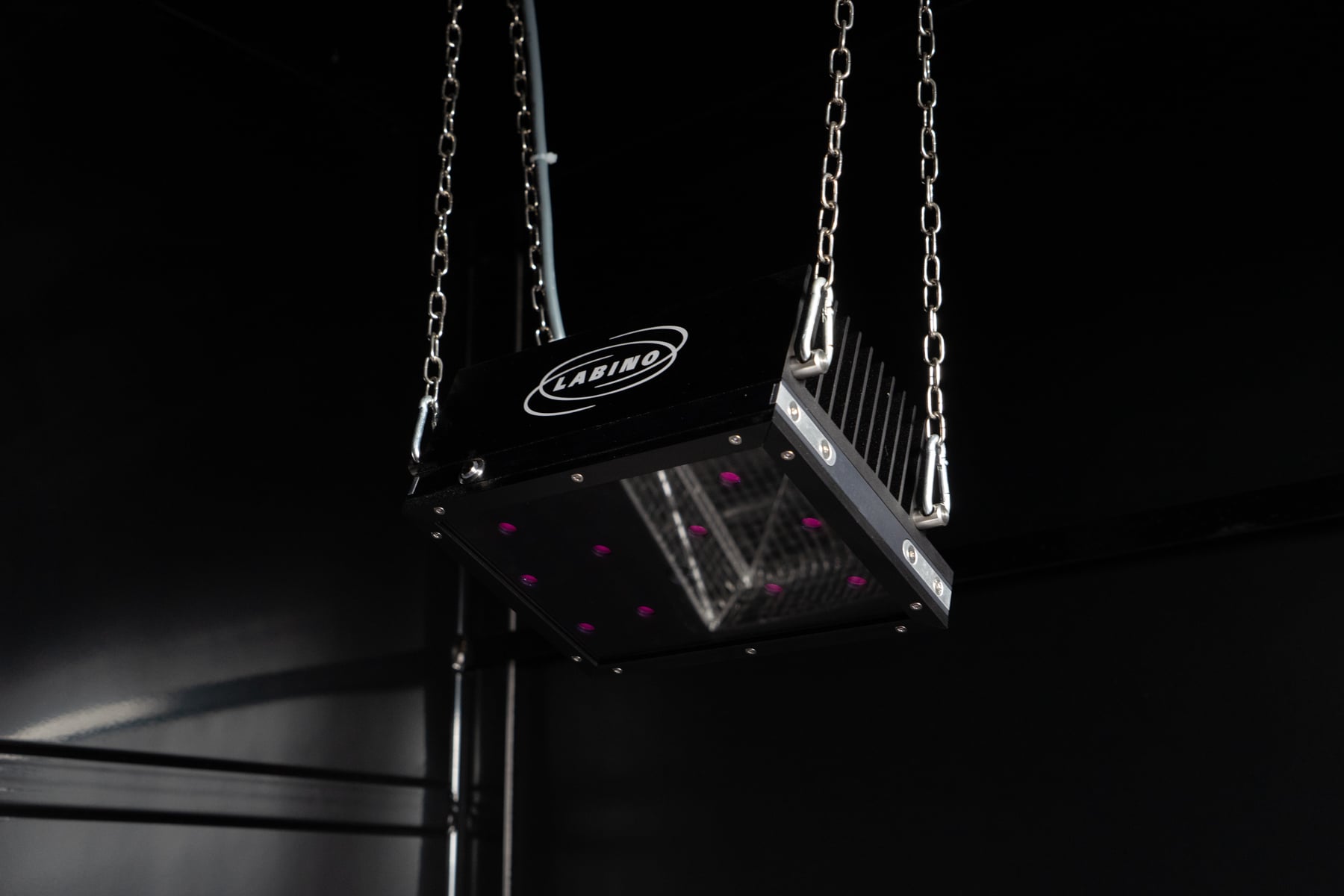Non-Destructive Testing (NDT) is accomplished with a number of specific processes with the primary goal of identifying potentially catastrophic cracks in part substrates. ACT’s customers know that they can depend on a properly designed and built system from ACT to deliver outstanding ergonomics, automated or semi-automated cycles, and even electrostatic developer delivery for precise part coating and significantly reduced consumption of developer. All ACT NDT systems are compatible with all ASTM E-1417 specifications and methods including method A, method B, and method D.
ACT Specializes in Engineered to Order FPI and MPI Non-Destructive Testing Systems (NDT)
PENETRANT INSPECTION
Easily Inspect Part Integrity
FULLY MODULAR DESIGN
Custom Stages Configurations
STAINLESS STEEL CONSTRUCTION
Built with Durability & Stability in Mind
ADVANCED TECHNOLOGY
Capacitive Illuminated Push Buttons
SAFE & ECO-FRIENDLY
Alarms & Safety Features Built-In
MADE IN USA
Built and Assembled in Our Factory in Texas
PURPOSE OF FPI SYSTEMS
Ensure Component Integrity with Fluorescent Penetrant Inspection
Our non-destructive testing systems be used across a broad array of industries, including aviation, automotive, construction, oil and gas, manufacturing, mining, military, pharmaceutical, and power. Contact an ACT sales engineer to discuss waste minimization and custom features such as powered turntables and transfer of loads to make your non-destructive testing system the most efficient and productive that it can be.
DYE PENETRANT INSPECTION
What does the FPI Process Involve?
1. Section of material with a surface-breaking crack that is not visible to the naked eye.
2. Penetrant is applied to the surface.
3. Excess penetrant is removed.
4. Developer is applied, rendering the crack visible.
ENGINEERING AND BUILDING SYSTEMS AROUND YOUR SPECIFIC NEEDS AND PART SIZES
Built for the toughest jobs. Made in the USA.
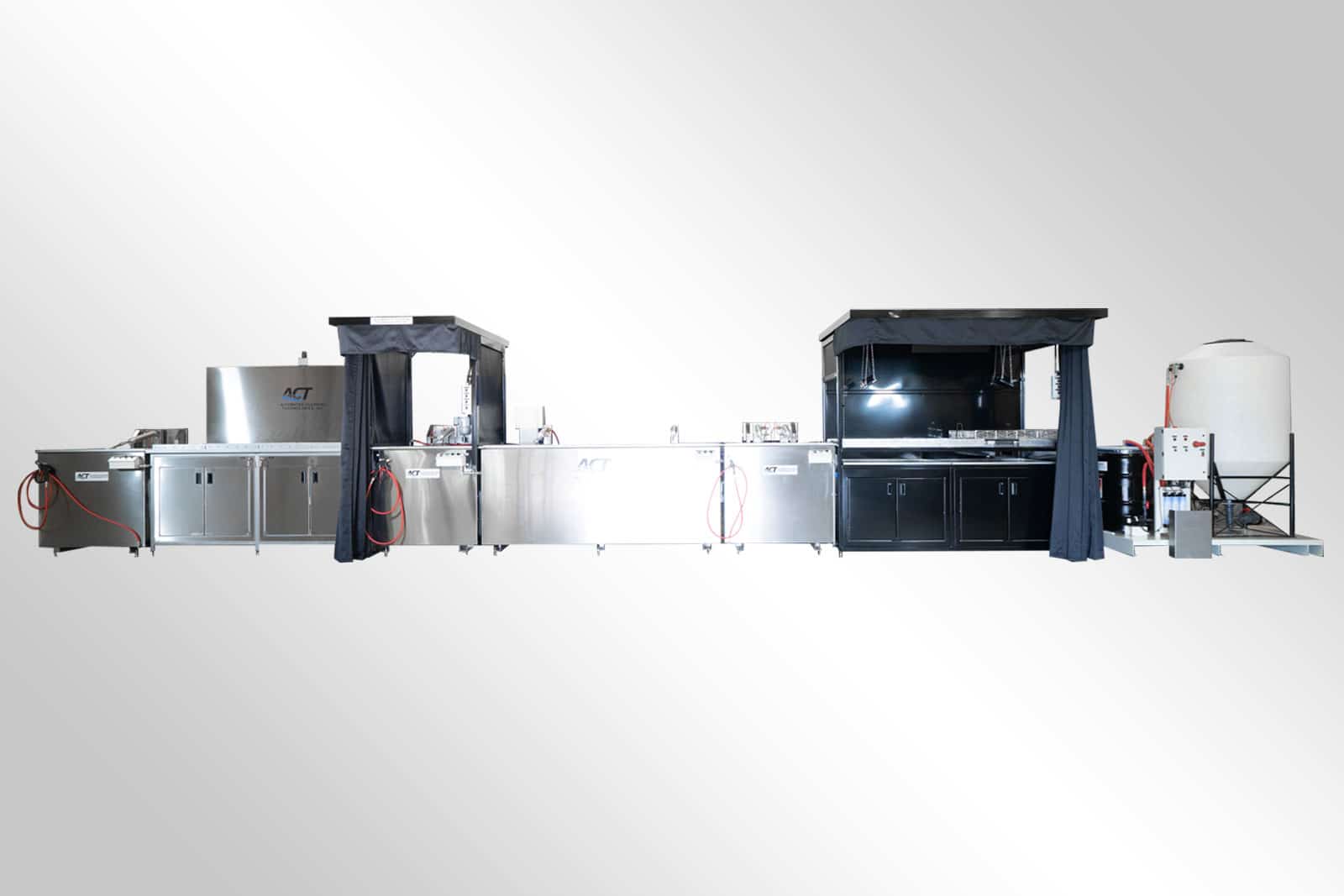
Application of Penetrant
Dwell
Rinse
Dryer
Powder Puff or Electrostatic
Inspection
Waste Minimization
IMAGE GALLERY
Non-Destructive Testing System Process
Pre-Cleaning
The test surface is cleaned to remove any dirt, paint, oil, grease or any loose scale.
Application of Penetrant
The penetrant is then applied to the surface of the component being tested. The penetrant will soak into any surface flaws.
Excess Penetrant Removed
All penetrant on the surface of the component being tested is removed, but penetrant trapped in cracks or defects remains in place.
Application of Developer
After excess penetrant has been removed, a white developer is applied to the sample. The developer draws from defects out onto the surface to form a visible indication.
Inspection
The inspection uses visible light for visible dye penetrant. Ultraviolet (UV-A) radiation, along with low ambient light levels are used for FPI examinations.



